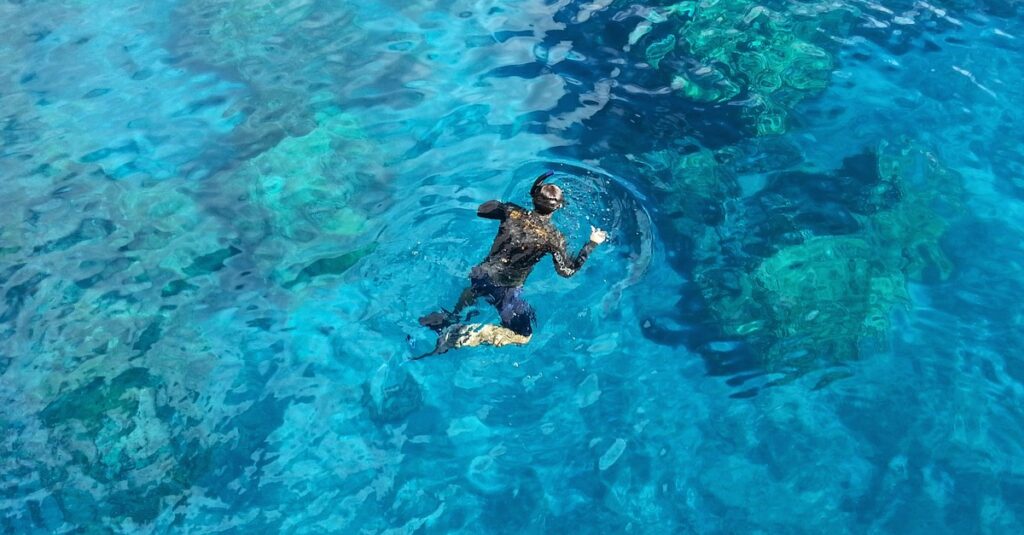

Freediving training and practice works muscles throughout the body, building physical and mental strength and resilience. As a sport, it gives a good overall workout. To boost your freediving performance, you could add leg and arm strength exercises to your training program, along with regular apnea and deep breathing exercises to train your diaphragm, intercostal muscles and lungs. Regular cardio exercise can strengthen your heart muscle.
Freediving works muscles throughout the body, including the heart, diaphragm, arm and leg muscles. During a dive, the body must work against increasing water pressure which is much higher than air pressure experienced on land. This means that muscles must work harder to produce the same movement or effect for every physical process.
The True Story Book of Freediving Champion Audrey Mestre and the Story of Her Death
View on Amazon: The Last Attempt (Opens new tab)


Top rated read
If you want to know more about which muscles are working during freediving, then our article can help. We look at a list of important muscles for freediving and why they’re working during a dive, as well as considering the type of workout you get from freediving.
Muscles freediving works and why
The list of muscles worked during freediving is long and covers many areas of the body, including the heart and diaphragm muscles which power the vital processes of circulation and breathing, as well as arm and leg muscles which guide and propel freedivers’ bodies through the water while descending or ascending.
Heart
The heart is the muscle which pumps blood around the body, with this circulation carrying oxygen to the brain and other vital organs, as well as removing waste and performing other functions.
Trained and experienced freedivers may see a fall in heart rate of up to 50% during a freedive, as their bodies try to conserve oxygen. Despite this lower rate of beats per minute, the heart will still be working hard to maintain this rate due to the higher water pressure around the body.
Diaphragm
The diaphragm is a muscular structure between the chest cavity, rib cage and abdomen, and is the main area of muscle used for breathing. It connects to the internal and external intercostal muscles at the ribcage, with a number of other muscles also connecting either to the diaphragm or intercostal muscles and assisting in breathing.
The diaphragm is particularly important for abdominal breathing, which is needed when “breathing-up” before a freedive in order to fill your lungs with as much air as possible.
Leg muscles
Most leg muscles will be worked while freediving. The quadriceps (quads) are a muscle group including the large muscles at the front of the thighs and may be the most important muscles for underwater propulsion during a freedive. Finning and propulsion movements will also involve the gluteus maximus muscles in the buttocks, the hamstrings, the calf muscles, and the ilipsoas and pectineus muscles in the upper thighs.
Arm muscles
While the arm muscles may be used less than the legs in many freedives they are still worked during a freedive and may be particularly important in disciplines such as Constant Weight without Fins, where divers must descend and ascend entirely by their own effort.
Key arm and shoulder muscles worked during a freedive include rotator cuff muscles, deltoids, teres major, and wrist extensors.
Is freediving a good workout?
Freediving has many benefits and is a good workout for building overall fitness. It increases strength, improves lung capacity and function, and burns large numbers of calories. Over time it makes your body use oxygen more efficiently, reduces excess body fat, and can enhance concentration, calm and mental resilience.
While freediving involves both aerobic and anaerobic activity in different muscles at different points during a dive, freediving may not be the right sport for you if you’re looking for a pure cardio workout.
The term “cardio” generally refers to vigorous activities which raise heart rate and respiration, increasing oxygen level and blood flow through the body. In the bodies of freedivers we see lowered heart rate and respiration with blood / oxygen diverted to the brain and vital organs, and away from peripheral areas.
Cardio activity is useful training to strengthen the heart for a better freediving performance, but freediving itself is not obviously “cardio” in the normal understanding of the term. To specifically increase your cardiovascular exercise level, jogging, walking, circuit training etc… may all be better options than freediving.
For more information on the health benefits of freediving, check out our article; does freediving make you fit (opens new tab).
